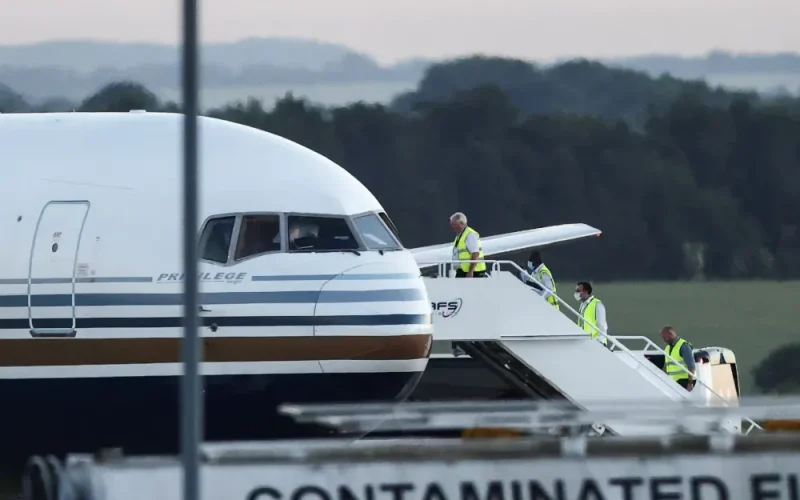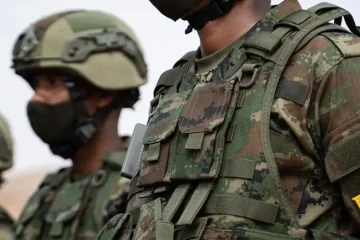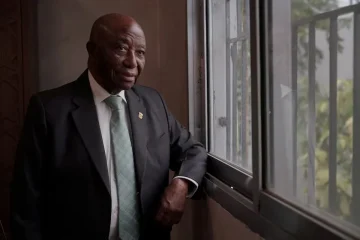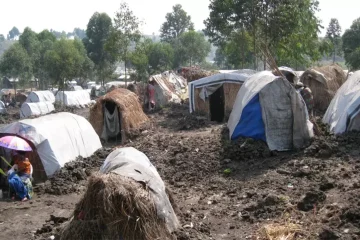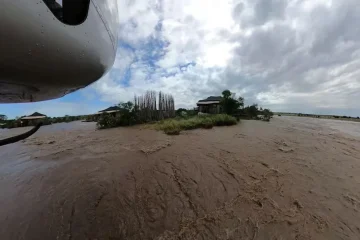LGBTQ+ rights groups are concerned that gay, bisexual, and transgender refugees could face discrimination and abuse if they are sent to Rwanda under Britain’s policy to deport asylum seekers to the East African nation.
British Prime Minister Rishi Sunak promised to start sending asylum seekers to Rwanda within 10 to 12 weeks as the upper house of parliament finally passed the required legislation, delayed for weeks by attempts to alter the contentious plan.
As LGBTQ+ rights groups criticise the plan, Illegal Migration Minister Michael Tomlinson said on Tuesday that “openly gay” asylum seekers would be sent to Rwanda.
“It is not unlawful to be gay in Rwanda and discrimination on any grounds is unlawful in Rwanda,” Tomlinson told Times Radio.
Here’s what you need to know.
Will LGBTQ+ migrants be sent to Rwanda?
While Britain’s Home Office (interior ministry) says gay, lesbian and bisexual asylum seekers who arrive in Britain illegally will not be exempted from possible deportation to Rwanda, the situation is less clear with regard to trans people.
A ministry assessment published in 2022 said there was evidence of ill-treatment towards trans people in the country, where changing gender is illegal.
Tomlinson did not make specific mention of trans people in his comments on Tuesday, and a Home Office spokesperson did not confirm whether trans asylum seekers would be included.
“Our international treaty with Rwanda makes it clear that Rwanda will provide safety and opportunity to all people who are relocated, without discrimination,” the spokesperson said.
“Rwanda’s constitution includes a broad prohibition on discrimination and does not criminalise or discriminate against sexual orientation in law or policy.”
The UK legislation allows for challenges only if a person faces “real, imminent and foreseeable risk of serious and irreversible harm” by being sent to Rwanda.
Sunak called it an “extremely narrow exception” during a press conference in December.
What rights do LGBTQ+ people have in Rwanda?
Rwanda is one of a handful of African nations that do not criminalise gay sex, and the country is a signatory to a U.N. statement condemning violence against LGBTQ+ people.
However, same-sex marriage is banned and LGBTQ+ people are not protected from discrimination by any specific legislation. Trans people cannot legally change their gender.
A U.S. State Department country report on Rwanda, published in March 2023, found there was significant discrimination against the LGBTQ+ community, including harassment from authorities.
Trans people were found to be particularly targeted by hate speech and physical and sexual abuse.
Rwandan officials say the country is a safe place for LGBTQ+ refugees and migrants.
“Discrimination of any form is not tolerated here. This is enshrined in our constitution … Everyone, including LGBTQ people, can feel safe, valued and protected under Rwandan law,” said government spokesperson Yolande Makolo.
What does the British government say?
Sunak’s government says the deportations will act as a deterrent, helping to stem the flow of migrants who make dangerous boat crossings across the English Channel from France.
Tens of thousands of migrants – many fleeing war and poverty in Africa, the Middle East and Asia – have reached Britain by such routes in recent years.
A briefing note accompanying the bill passed on Tuesday said LGBTQ+ people “may face some discrimination in practice” in Rwanda, but that it was “generally considered more progressive” than neighbouring countries.
Previous Home Office guidance, published in 2022, but withdrawn last year on the grounds it was out of date, said LGBTQ+ Rwandans reported “some societal discrimination and abuse, including discrimination in employment, eviction, ostracism from family and threats of violence”.
However, it said discrimination or intolerance were “not sufficiently serious … to amount to persecution or serious harm” for gay and bi people, though it added that the situation “may be different for trans persons”.
This article was updated on April. 23 after the bill was passed by Britain’s upper house of parliament.
This story is part of a series supported by HIVOS’s Free To Be Me programme.
- Context is powered by the Thomson Reuters Foundation Newsroom

